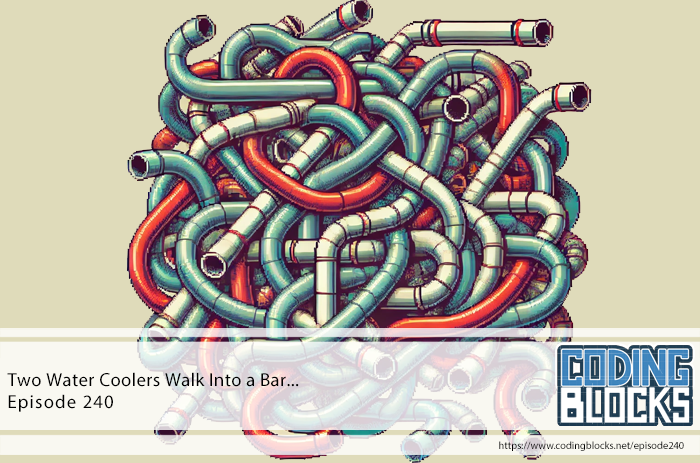
 Coding Blocks
Coding Blocks Two Water Coolers Walk Into a Bar…
4 snips
Aug 18, 2024 Join Allen, the candid commentator, Outlaw, the organizer, and detail-oriented Joe, as they dive into the world of legacy code and the pitfalls of outdated technology. They tackle the importance of clean architecture while sharing personal stories about network upgrades and coding frustrations. The trio also brainstorm humorous programming competitions inspired by the Olympics, and engage in playful trivia. Don't miss their insights on Docker tips for 2024 and the promising tool Earthly that enhances application building!
Chapters
Transcript
Episode notes
1 2 3 4 5 6 7 8 9 10
Intro
00:00 • 3min
Navigating Legacy and Architectural Challenges
02:31 • 18min
Navigating Coding Practices and AI Challenges
20:18 • 19min
Exploring Data Analysis and Network Challenges
39:32 • 5min
Literary Trivia and Playful Banter
44:35 • 19min
Playful Coding Competitions
01:03:31 • 4min
Navigating the Challenges of Data Extraction and Analysis
01:07:14 • 4min
Navigating the Challenges of Data Integration
01:10:52 • 3min
Docker Development Insights for 2024
01:13:45 • 18min
Exploring Earthly: A New Build Tool Beyond Docker
01:31:49 • 2min


